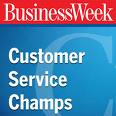A trait that goes ignored by most individuals in my experience. If one is to respond whether it be good or bad news it is still a response. Don’t you appreciate a response?
Category: Uncategorized
Approaching Your Bank
Understand that your primary responsibility is the proper use of capital and that you are in business to make a profit.
Test the economics of your product or service. Make sure that it is profitable and that the gross profit percent is in line with that of the industry.
 Know how you will finance your business. Visit lenders (banks) prior to seeking financing to gather information. Ask your lenders what they will want to see before you apply for a loan.
Know how you will finance your business. Visit lenders (banks) prior to seeking financing to gather information. Ask your lenders what they will want to see before you apply for a loan.
Develop a personal financial evaluation. Determine your net worth and your annual, personal cash flow needs.
Develop realistic financial forecasts for income statements, cash flow and balance sheets for three years. Forecast monthly for the first year.
Forecast the Future of your Business
Develop meaningful sales forecasts in terms of basic business units. Weekly sales for the first months and monthly sales for the first year. Consider possible scenarios, such as a 15 percent rise or fall in sales.
 Research your products or services, customers and markets.
Research your products or services, customers and markets.
What methods does the customer use in purchasing?
Plan how you will make your product or service available to them─wholesale, retail, direct or Internet.
Develop a plan or strategy to follow if your sales forecasts completely miss your predictions.
Vendor Relationships
Solid vendor relationships are essential in maintaining a successful organization.
1. Get to know your suppliers. Use new technology for communication, but don’t forget the personal touch of a phone conversation.
 2. Consider your vendors as a part of your team and treat them as such.
2. Consider your vendors as a part of your team and treat them as such.
3. Make sure they understand your needs and expectations.
4. Show appreciation for good service or for a new product that’s just right for you.
5. Pay on time. If you can’t, let your vendors know right away and work out a payment plan. That’s when knowing them personally will be invaluable.
Domain Name
The identity of your company is very important, some tips:
1. Create an online identity. Get a Web domain now, even if you aren’t building your site until later.
2. Pick three domain names that fit your business. Your first choice may be taken, so have a few domain name ideas. If your top three picks are available, consider getting all three. It’s not too expensive and then you have flexibility to create a site for a special promotion or use a special landing page for an event.
 3. Check out domain name vendors. You can register your domain with your choice of vendor. Here are some well-known, domain name registrars:
3. Check out domain name vendors. You can register your domain with your choice of vendor. Here are some well-known, domain name registrars:
Network Solutions, http://www.networksolutions.com
GoDaddy, http://www.godaddy.com
Domaindirect.com, http://www.domaindirect.com
4. Keep your renewal current. Don’t forget to renew your domain name. Businesses have been known to let a name expire and then find that their Web site has disappeared from the Internet. Don’t let that be you.
5. Once you have a domain, name your URL mycompany.com, place your URL on every marketing and business document that you produce. Let your company be known.
Common Sense Customer Service
We always need to work on improving our customer service skills. Some points that could help:
1)Educate your customers about your products and services.
2)Make sure items are delivered in good condition. Call the customer after delivery and if a piece is not right, offer to fix it or replace it.
3)Offer your customers personal attention, even if they don’t buy anything. Engage them in pleasant conversation and find out why they’re not buying. Make use of what you learn.
4)Go out of your way to meet customer needs. One interior designer got draperies made for a client in a hurry so they would be ready for an at-home wedding.
 5) Show appreciation. Make sure employees always thank customers for their business. Consider sending occasional handwritten thank-you notes.
5) Show appreciation. Make sure employees always thank customers for their business. Consider sending occasional handwritten thank-you notes.
6)RESPONSIVENESS…always respond to an email or voice mail within a consistent period time.
“A little common sense can go a long way!”
Disaster Recovery
Often an organization tends to side on a reactive approach, it is important for the stability and continuity of a company to be proactive and prepare for unforeseen scenarios. Some tips for disaster recovery:

1) Recognize that your business can suffer a natural disaster. Small businesses the world over have been affected by disasters such as hurricanes, tornadoes, floods, earthquakes, tsunamis, volcanic eruptions and fire.
2)Develop your recovery plan before disaster strikes. Make sure everyone in your company is familiar with the plan and knows what steps to take in emergencies.
3)Have adequate insurance. You’ll need coverage not only for property damage and loss (including inventory), but also for business interruption.
4)Draw up a list of telephone numbers for all employees. Assign certain employees to call others if disaster strikes. That way, you can learn who is all right and who needs help, and you can quickly communicate instructions about your business.
5) Don’t forget your computer system. Keep backup programs and duplicate records (accounts receivable, client information, and the like) at a different, safe site.
Obviously much more detail and planning should be involved but these steps should be a good start.
Interaction at Work
I think it is important that the “door of communication” is always open. Some good steps to ensure a solid environment:
A) Employees want to trust you and you to trust them. Begin by being trustworthy and extending trust.
B) Employees want good two-way communication. Begin by being a good listener.
C) Employees want to be challenged. Set forth your vision and goals clearly and then let your workers exercise their creativity and authority in meeting your goals.
D) Employees want accountability. Not only should you hold them accountable for their own performance but you should measure your own performance as well.
E) Employees want recognition. Offer praise and express appreciation at every opportunity.
Let’s not forget about our best asset the employee. A positive environment is a successful environment.
Fostering Innovatiion
In the world today a successful company is always looking at new ideas to help grow the business.
Some ideas:
Show your employees that you think of innovation as an ongoing process. Some ideas will work and some won’t. Keep experimenting. 
Listen, listen, listen. Innovation is a collaborative process.
Be open to “accidents,” the unexpected connections that spark new ideas. Inspiration comes from everywhere—often from outside your own field.
Get Feedback from your own employees—they know the company’s problems and goals best. This is probably one time you don’t need outside consultants.
Be patient. Creativity can’t be hurried.
Coming up with new ideas should be an ongoing process…….always in the plan.
Developing Policies for Your Business
It is important to have a clear definition of policy within the company, some basic tips:
A) Employees are your most important assets, so hire the best, provide training and growth opportunities, and recognize good performance.
B) Have a meaningful, concise and realistic job description for each employee. Make sure you review it with the employee and that it is understood.
 C) Be sure employees know what is expected of them. Establish high standards of performance ethics.
C) Be sure employees know what is expected of them. Establish high standards of performance ethics.
D) Offer specialized training or skills enhancement to your current employees. Promoting from within encourages and motivates your greatest assets─your current workforce.
E) Create a New Employee Referral Bonus Program. Describe your needs in title and duties and offer a reward for your “most wanted.”
Having a concise plan is always a positive start.

You must be logged in to post a comment.